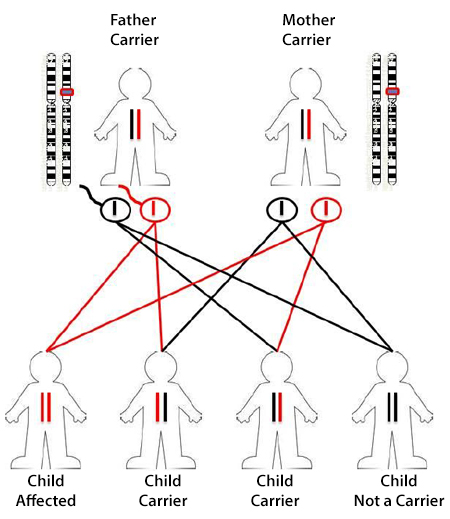The gene responsible for Alström Syndrome was discovered by scientists at the Jackson Laboratory in Maine, USA, and scientists at Southampton University, England, simultaneously.
The ALMS1 gene provides instructions for making a protein, of which the function is unknown. Researchers believe that the protein may play a role in hearing, vision, regulation of body weight, and functions of the heart, kidney, lungs, and liver. It may also affect how the pancreas regulates insulin, a hormone that helps control blood sugar levels. The gene responsible for Alström Syndrome was discovered by scientists at the Jackson Laboratory in Maine, USA, and scientists at Southampton University, England, simultaneously.
Alström Syndrome is an autosomal recessive condition meaning that both parents must carry one copy of the ALMS1 gene with a significant mutation to have an affected child. There is a 1 in 4 chance of having an affected child with each pregnancy.
Almost all of our genes come in pairs, one inherited from each of our parents. Most parents are not aware that they carry an alteration in ALMS1 gene until the birth of an affected child. Carriers of Alström Syndrome have one copy of the altered or mutated gene, but do not have any visible symptoms of Alström Syndrome. A recessive condition like Alström Syndrome results when a child inherits two copies of the altered ALMS1, one from each parent. Both parents must be carriers in order for any of their children to be affected. Couples in which the man and the woman are each carriers of an alteration in ALMS1, have a 25% chance with each pregnancy of conceiving a child with Alström Syndrome. There is a 50% chance of producing a child who is a carrier like the parents and a 25% chance that the child will be neither a carrier or affected. Please see the diagram below:

